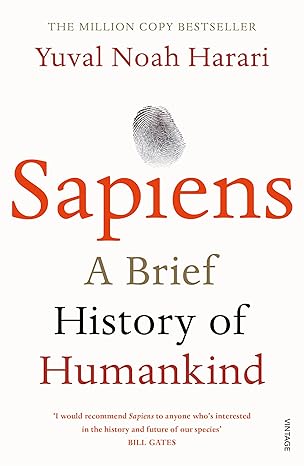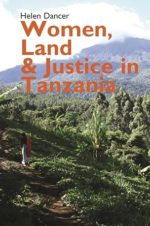How did our species succeed in the battle for dominance Why did our foraging ancestors come together to create cities and kingdoms How did we come to believe in gods nations and human rights to trust money books and laws and to be enslaved by bureaucracy timetables and consumerism And what will our world be like in the millennia to come
Sapiens: A Brief History of Humankind
KShs 595.00
How did our species succeed in the battle for dominance Why did our foraging ancestors come together to create cities and kingdoms How did we come to believe in gods nations and human rights to trust money books and laws and to be enslaved by bureaucracy timetables and consumerism And what will our world be like in the millennia to come
1 in stock
| SKU: | 9780099590088 |
|---|---|
| Categories: | Historical Biographies, History books |
Related products
-
Salamis : The Greatest Naval Battle of the Ancient World,
KShs 795.00“Salamis” tells the story of possibly the greatest naval battle of the ancient world. Involving hundreds of thousands of combatants and well over a thousand triremes – the ranking naval war engine of the time – it was the culminating battle in a twenty-year struggle between the Persian Empire and the Greeks. Against all odds – and with the help of a little treachery, a brilliant strategy and a lucky wind – the Greeks defeated the Persians, and with it began the roll-back of the Persian Empire, and the beginning of the Hellenic imperium. This epic tale is told through the individual stories of twelve characters, six form each side, each of which played a major role in the battle and its aftermath.
-
Women, Land and Justice in Tanzania (African Edition)
KShs 2,000.00Recent decades have seen a wave of land law reforms across Africa, in the context of a “land rush” and land-grabbing. But how has this been enacted on the ground and, in particular, how have women experienced this? This book seeksto re-orientate current debates on women’s land rights towards a focus on the law in action. Drawing on the author’s ethnographic research in the Arusha region of Tanzania, it explores how the country’s land law reforms have impacted on women’s legal claims to land. Centring on cases involving women litigants, the book considers the extent to which women are realising their interests in land through land courts and follows the progression of women’s claims to land – from their social origins through processes of dispute resolution to judgment.
Dancer’s work explores three central issues. First, it considers the nature of women’s claims to land in Tanzanian family contexts,the value of land in an era of land reform and the ‘land rush’ across Africa, and the extent to which the social issues raised are addressed by Tanzania’s current laws and legal system. Secondly, it examines how agency and power relations between social and legal actors engaged in legal processes affect women’s access to justice and the progression of claims. Thirdly, it explores Tanzanian concepts of justice and rights and how women’s claims have been judged by land courts in practice.Helen Dancer is a lecturer in Law at the University of Brighton. She practised as a barrister in England specialising in family legal aid cases prior to training as a legal anthropologist. She is also a consultant for Future Agricultures at IDS, University of Sussex. Her areas of research interest include law and development, gender and land, and human rights and legal pluralism.
-
In His Father’s Footsteps
KShs 400.00As the Americans liberate the Buchenwald concentration camp, among the survivors are teenagers Emmanuelle and Jakob, who fell in love despite the suffering surrounding them. With help, they make their way to New York, resolved to make a new life on the Lower East Side, working at gruelling, poorly paid jobs.
Decades later, Jakob has achieved enormous success, showing his son Max that America is truly the land of opportunity. Max is a Harvard graduate with friends among the wealthiest families in the world, and he chooses a perfect bride to start the perfect American family.
Max’s lavish lifestyle is unimaginable to his cautious, old-world parents. But after the birth of his children, and with a failing marriage, he fears his wife is keeping secrets.
KShs 795.00 -
Einstein His Life & Universe By: Walter Isaacson
KShs 1,695.00Einstein was a rebel and nonconformist from boyhood days, and these character traits drove both his life and his science. In this narrative, Walter Isaacson explains how his mind worked and the mysteries of the universe that he discovered.
-
Violent Politics: A History of Insurgency, Terrorism, and Guerrilla War, from the American Revolution to Iraqer
KShs 1,500.00Guerrilla warfare is not just the tool of modern-day terrorists in the Middle East. Its roots stretch back to our very own revolution.
In Violent Politics, William R. Polk takes us on a concise, brilliant tour of insurgencies throughout history, beginning with America’s own struggle for independence. Continuing on, Polk explores the role of insurgency in other notable conflicts—including the Spanish guerrilla war against Napoleon, the Irish struggle for independence, the Algerian War of National Independence, and Vietnam—eventually landing at the ongoing campaigns in Afghanistan and Iraq, where the lessons of this history are needed more than ever.
-
Eastern Approaches-FITZROY MACLEAN
KShs 400.00The classic true adventure story of a man who, by the pen, sword, and diplomatic pouch, influenced some of the most significant events of our era. Fitzroy Maclean recounts his extraordinary adventures in Soviet Central Asia; in the Western Desert, where he specialized in hair-raising commando raids behind enemy lines; and with Tito’s partisans during the last months of the German occupation of Yugoslavia. An enthralling narrative brilliantly told.
-
Land, Migration and Belonging
KShs 14,560.00Tracing the history of the Basotho, a small mainly Christianised community of evangelists working for the Dutch Reformed Church, this book examines the challenges faced by minority ethnic groups in colonial Zimbabwe and how they tried to strike a balance between particularism and integration. Maintaining their own language and community farm, the Basotho used ownership of freehold land, religion and a shared history to sustain their identity. The author analyses the challenges they faced in purchasing land and in engaging with colonial administrators and missionaries, as well as the nature and impact of internal schisms within the community, and shows how their “unity in diversity”impacted on their struggles for belonging and shaped their lives. This detailed account of the experiences and strategies the Basotho deployed in interactions with the Dutch Reformed Church missionaries and colonial administrators as well as with their non-Sotho neighbours will contribute to wider debates about migration, identity and the politics of belonging, and to our understanding of African agency in the context of colonial and missionary encounters.
Published in association with the British Institute in Eastern Africa
-
The Dreadful Judgement
KShs 650.00If the story that struck the Grand Banks off Newfoundland in October 1991 was “The Perfect Storm”, the fire that destroyed London in September 1666 was “The Perfect Fire”. A fire needs only three things: a spark to ignite it, and the fuel and oxygen to feed it. In 1666, a ten-month drought had turned London into a tinderbox. The older parts of the city were almost entirely composed of wood-frame buildings and shanties. The riverside wharves were stack with wood, coal, oil, tallow, hemp, pitch, brandy, and almost every other combustible material known to seventeenth century man. On 2 September 1666, London ignited. Over the next five days the gale blew without interruption and the resulting firestorm destroyed the whole city. “The Dreadful Judgement” tells the true, human story of the Great Fire of London through the eyes of the individuals caught up in it. It is a historical story combining modern knowledge of the physics of fire, forensics and arson investigation with the moving eye-witness accounts to produce a searing depiction of the terrible reality of the Great Fire of London and its impact on those who lived through it.










Be the first to review “Sapiens: A Brief History of Humankind”